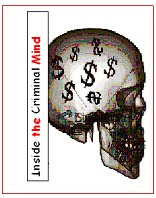Climbing your way out of debt is not an easy task under any circumstances, but if that debt includes back taxes, the pressure alone can add to the burden. Low and behold, in a show of compassion uncharacteristic of the IRS, those struggling to claw out of tax debt have been handed a gift of leniency. This past Thursday the Internal Revenue Service announced a new set of rules structured to aid individuals and small businesses in their effort to pay off tax debt.The IRS commissioner, Doug Shulman, stated that it will place fewer claims on properties, and make any such liens much less of an impact on the credit ratings of anyone unfortunate enough to be subjected to property liens from the IRS. Additionally, the IRS was previously able to take legal claim to property in the amount of unpaid tax debt when taxes exceed $5,000.
The new regulations increase that to taxes exceeding $10,000, before the IRS can take legal claim. Shulman is quotes in the Wall Street Journal as saying that the new rules are an effort to “stand in the taxpayers shoes”. This clearly is a step in the right direction though more should be done to assist homeowners, in the wake of the worst recession in generations.
Back to Homepage
K. Reilly
The Cohn-Reilly Report.com
Saturday, February 26, 2011
Gift of Leniency: IRS’s Surprising Changes to Aid Taxpayer in Debt
Monday, February 7, 2011
Madoff: Victims' Recovery Efforts get Ugly
The Madoff plot thickens, as lawyers for his victims expand their hunt for associates and partners, who could be tapped for retrieval of funds. JP Morgan Chase is the latest in a string of suits filed against the Bernie Madoff clan. (A similar suit was filed against the Mets owners, claiming that Wilpon, et al, profited hundreds of millions of dollars from Bernie’s scheme, and ignored the warning signs) The Wall Street Journal reported that a sealed 115 page lawsuit was waged against JPM. Irving Picard’s, the victims’ trustee for recovery of Ponzi funds, filed the $6.4 billion lawsuit in December.
Pardon me for saying, but there is enough blame to go around with respect to watchdogs that did not watch, and market regulators that failed to regulate. Matters were made worse by the lack of enforcement of the limited regulations that survived deregulation of the finance industry. For the record, JPM Chase called the allegations meritless, but it all remains to be seen. In JP Morgan’s defense, two months prior to Madoff’s scheme being made public, there is evidence that the someone from the bank's US division sent a Memo to a department head in Great Britten concerning their suspicions about Bernie Madoff’s fund. If this is true, it does not support the claims delineated in the suit.
In all fairness, it’s important to remember that Bernie Madoff had established himself as being extremely smart and prosperous. He was instrumental in setting up NASDAQ, which propelled his reputation as a mover and a shaker. Bernie was often asked to participate in think-tanks concerning developing systems to automate trading, he was regularly invited to round table discussions for Financial News shows. Consequently, portfolio managers, hedge funds and banks all had immense respect for him, particularly since Madoff was associated with success, and being on the cutting edge of the convergence of technology and trading systems. Therefore, I am inclined believe that most of the firms involved with Madoff thought of him as a golden child, and not a criminal. Who would have thought the worst case scenario could be possible on such a grand scale, and executed over a 15 year period?
On the other hand, there are certainly legitimate partners-in-crime that can be identified, such as his “storefront” accountant - particularly the firms that received fees for steering wealthy investors to the Madoff’s fund. The associates of Madoff’s Ponzi scheme, may or may not have been fully aware of Madoff’s sinister scheme. I tend to think they did not know he was a scamming their clients. It could not have been sustainable for so long if there were so many people who knew about it. If nothing else, these firms are clearly guilty of letting greed be their primary focus, instead of the best interest of the client.
Victims recovery allegations are (in some cases) reaching too far, and thus taking an ugly turn. There seems to be plenty of unwitting associates sympathizing with the victims and cooperating by returning much of the funds affiliated with Madoff 's plot - amounting to over $7 billion. I think that is more than what we ever expected to dig out of this hideous set of circumstances.
See Video of initial Recovery Plan
To Cohn-HomePage
K. Reilly
Cohn-Reilly Report
Pardon me for saying, but there is enough blame to go around with respect to watchdogs that did not watch, and market regulators that failed to regulate. Matters were made worse by the lack of enforcement of the limited regulations that survived deregulation of the finance industry. For the record, JPM Chase called the allegations meritless, but it all remains to be seen. In JP Morgan’s defense, two months prior to Madoff’s scheme being made public, there is evidence that the someone from the bank's US division sent a Memo to a department head in Great Britten concerning their suspicions about Bernie Madoff’s fund. If this is true, it does not support the claims delineated in the suit.
In all fairness, it’s important to remember that Bernie Madoff had established himself as being extremely smart and prosperous. He was instrumental in setting up NASDAQ, which propelled his reputation as a mover and a shaker. Bernie was often asked to participate in think-tanks concerning developing systems to automate trading, he was regularly invited to round table discussions for Financial News shows. Consequently, portfolio managers, hedge funds and banks all had immense respect for him, particularly since Madoff was associated with success, and being on the cutting edge of the convergence of technology and trading systems. Therefore, I am inclined believe that most of the firms involved with Madoff thought of him as a golden child, and not a criminal. Who would have thought the worst case scenario could be possible on such a grand scale, and executed over a 15 year period?
On the other hand, there are certainly legitimate partners-in-crime that can be identified, such as his “storefront” accountant - particularly the firms that received fees for steering wealthy investors to the Madoff’s fund. The associates of Madoff’s Ponzi scheme, may or may not have been fully aware of Madoff’s sinister scheme. I tend to think they did not know he was a scamming their clients. It could not have been sustainable for so long if there were so many people who knew about it. If nothing else, these firms are clearly guilty of letting greed be their primary focus, instead of the best interest of the client.
Victims recovery allegations are (in some cases) reaching too far, and thus taking an ugly turn. There seems to be plenty of unwitting associates sympathizing with the victims and cooperating by returning much of the funds affiliated with Madoff 's plot - amounting to over $7 billion. I think that is more than what we ever expected to dig out of this hideous set of circumstances.
See Video of initial Recovery Plan
To Cohn-HomePage
K. Reilly
Cohn-Reilly Report
Subscribe to:
Comments (Atom)








